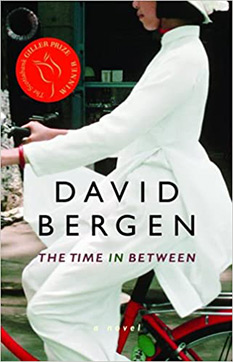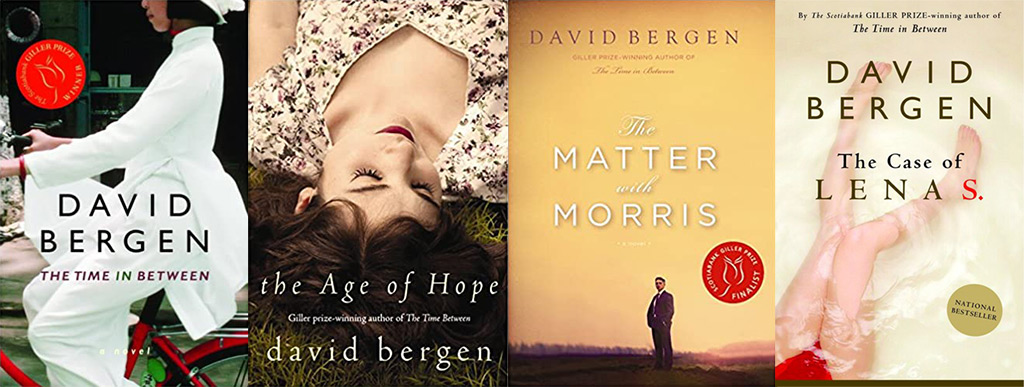The Time In Between, David Bergen (Toronto: McClelland & Stewart, 2005).
After reading Bergen’s short-story collection, Here the Dark, nominated for the 2020 Giller Prize, and after drawing a favourable comparison between it and Denis Johnson’s Jesus’s Son, I decided it would be fruitful to read more of Bergen’s work starting with his Giller Prize-winning novel. The comparison to Denis Johnson holds up. This time, Bergen’s novel compares favourably to Johnson’s Tree of Smoke. However, in the skewed timeline of my reading, I realize that a favourable comparison does not mean actual influence. Bergen’s novel appeared two years before Johnson’s, so if there was any influence at play here, it ran in Johnson’s direction.
The obvious reason for the comparison is that both novels concern Vietnam, not as an occasion for American angst, but as an acknowledgment of a people and a place that lies beyond western experience. For me, what drives the comparison more deeply is the style of the writing. Both writers deploy a crisp detached prose that is perfectly suited to evince an emotionally lost protagonist looking from the outside in.

In Bergen, the story circles around Charles Boatman, a man now in middle age who did a tour of duty in Vietnam when he was 18. Haunted by his experience, he returns to Da Nang where he vanishes. Two of his children, Ada and Jon, travel to Da Nang to learn what has happened to their father and also to learn something of his past. What haunts him? And what does he hope for by returning?
We learn that during his tour, Charles had what might be described as a personal My Lai moment. He didn’t participate in the massacre of a village; instead, he committed a more intimate atrocity, killing a boy, followed shortly by a pig and a dog, as if the three bore some kind of equivalency. Returning to the scene almost 30 years later, Charles recognizes almost none of it. Most of the people who live there are too young to remember events from the war. Only one original family remains and its members appear not to have been present when the incident occurred. Although we can’t be sure why Charles has returned to the scene—confession? atonement? forgiveness?—it seems none of the usual motivations will bear any fruit.
When his body washes ashore near the beach at My Khe, his children’s worst fear is confirmed. The balance of the book belongs to Ada, the daughter, the eldest, the one on whom the responsibilities for remembrance fall most heavily. She retraces her father’s steps to the village in question, armed with all her conventional assumptions about what he must have been doing—confession? atonement? forgiveness? Using a local artist named Huang Vu (who has become her lover) as translator, she presses the villagers. She insists they know who her father was and what he had done. Her friend advises against this, not because the villagers will become angry or resentful, but because it is information they do not want and which cannot serve any use.
Huang Vu is reminiscent of Aziz in A Passage To India, trying his best (and failing) to mediate between two cultural sensibilities, each of which appears determined to be oblivious of the other. The people in that village do not want to know what happened a generation ago. Maybe it has something to do with a Vietnamese way of viewing time and history. Who knows? Western readers share with Ada an outsider’s perspective and can never penetrate this sensibility. At the same time, Ada’s insistence on sharing to leverage some kind of closure reflects a sensibility on her side which may be equally impenetrable from the perspective of a rural Vietnamese person. Westerners have taken and taken, and now they come back to take one more thing. Forgiveness. Resolution. Closure. The Oprah moment.
Huang Vu knows this can never happen, just as he knows whatever passes between him and Ada is a superficial exchange.
The irony—or is it a paradox?—is that the impenetrability is presented to us by a writer who, himself, stands on the outside looking in. Like E.M. Forster before him, Bergen has no more idea than us what may be missing from his story. The best he can do, and us with him, is to acknowledge that he knows that he does not know.
